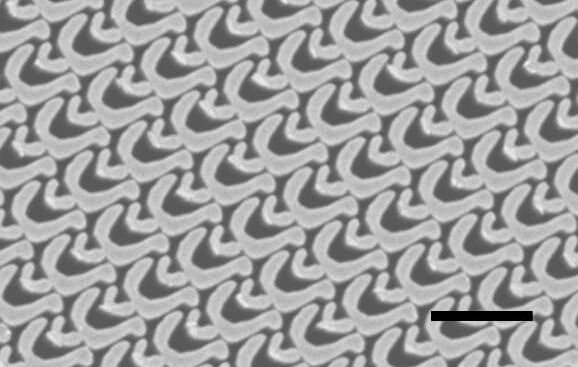Polarization, the direction in which light vibrates, is invisible to the human eye. Yet, so much of our optical world relies on the control and manipulation of this hidden quality of light.
Materials that can manipulate the polarization of light —known as birefringent materials—are used in everything from digital alarm clocks to medical diagnostics, communications and astronomy.
Just as light’s polarization can vibrate along a straight line or an ellipse, materials can also be linearly or elliptically birefringent. Today, most birefringent materials are intrinsically linear, meaning they can only manipulate the polarization of light in a limited way. If you want to achieve broad polarization manipulation, you need to stack multiple birefringent materials on top of one another, making these devices bulky and inefficient.
